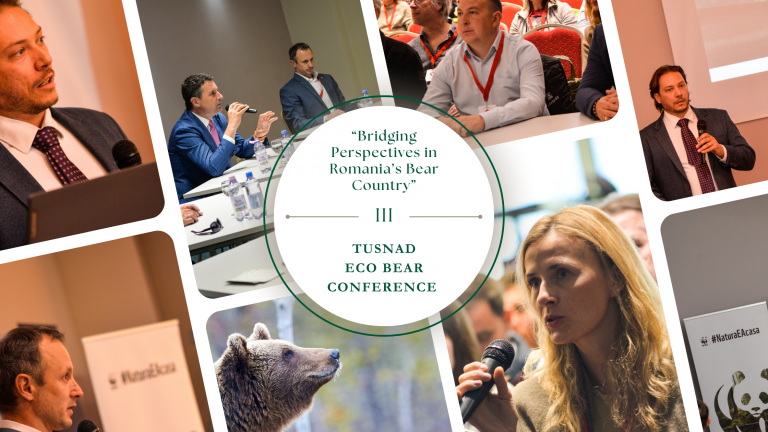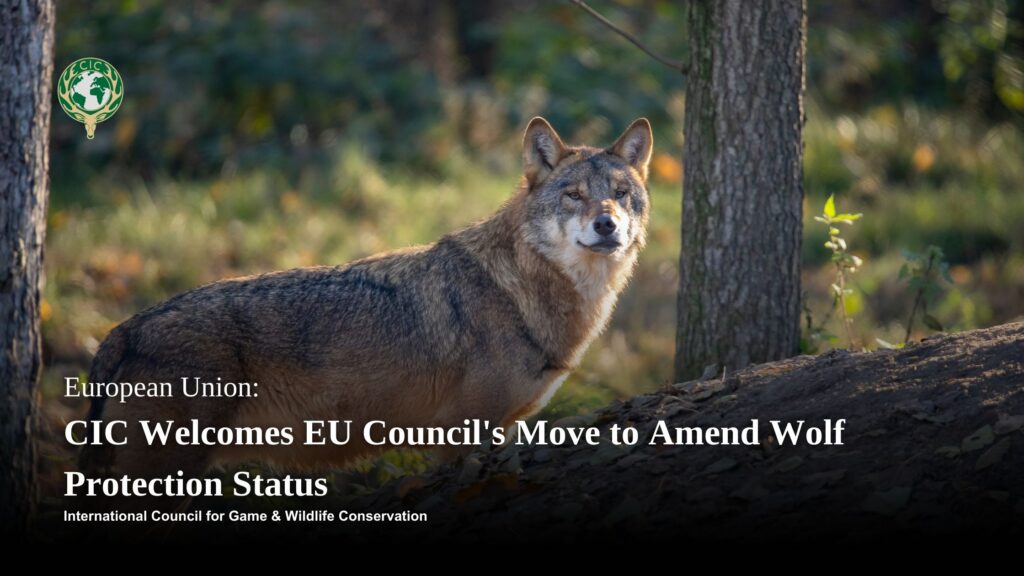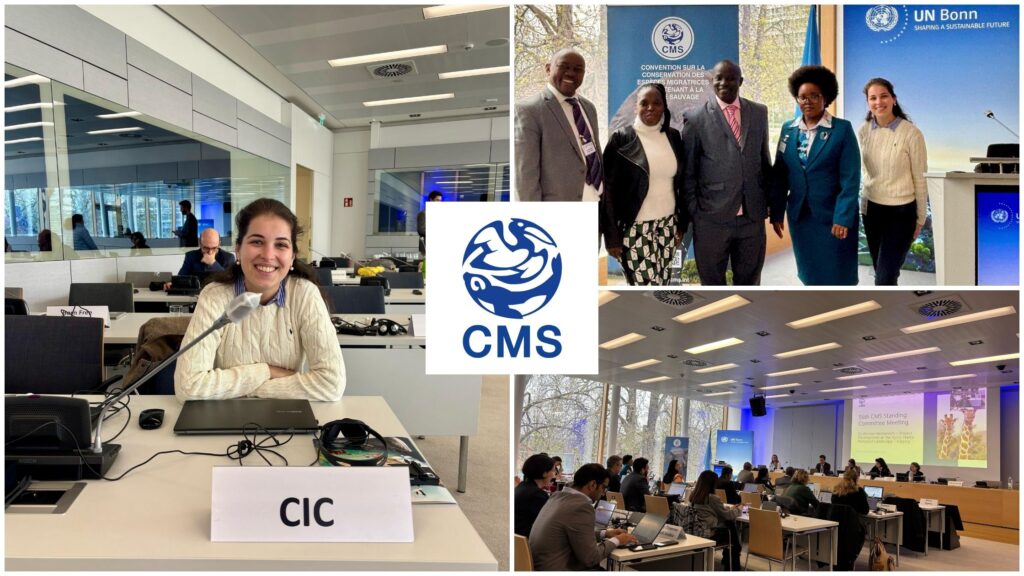Home » News & Press » Bridging Perspectives in Romania’s Bear Country: Insights from the III Tusnad Eco Bear Conference
Băile Tușnad, Romania – CIC was in attendance as Romania’s Carpathian Mountains hosted the III Tusnad Eco Bear Conference. Experts, policymakers, and stakeholders gathered to address the complex and pressing issue of brown bear management.
The timing of the conference could not have been more relevant. Just weeks before, a 19-year-old hiker tragically lost her life in a bear attack on a popular mountain trail in Bucegi, igniting intense debate on bear management practices across the country. In an emergency response, Romania’s Parliament nearly doubled the hunting quota to 500 bears, a move met with both relief and concern as Romania faces growing pressure to ensure public safety while balancing conservation. Moderated by Radu Pirca, Energy & Environment Editor for Wall-Street.ro, the conference offered a crucial opportunity to bring together diverse perspectives in search of a workable path forward.
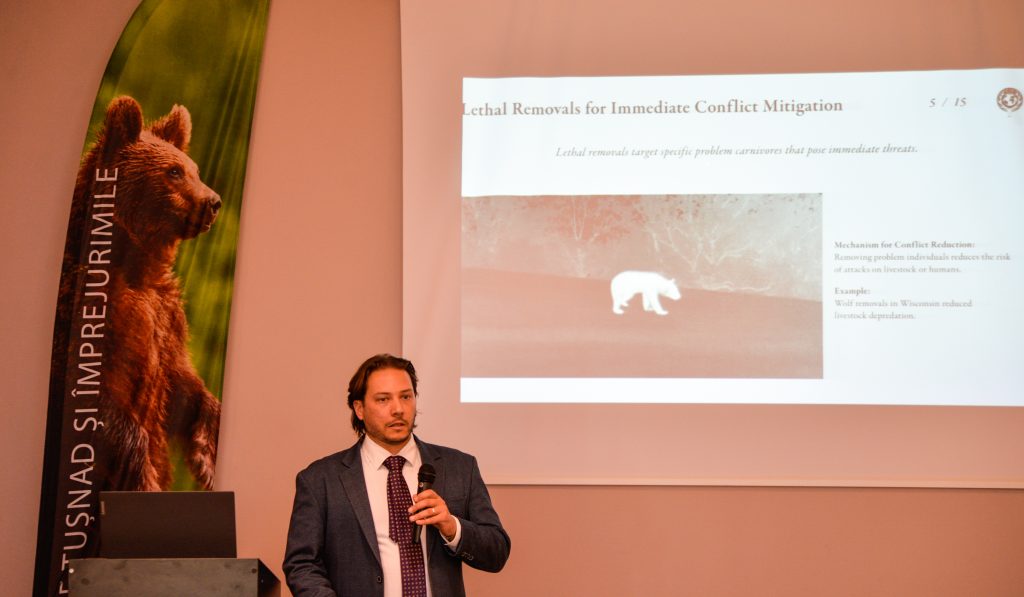
A Call for Pragmatic Conservation
A key panel discussion at the conference brought together leaders like Zsolt Butyka, mayor of Băile Tușnad—Romania’s first bear-smart city; Barna Tánczos, former Minister of Environment, who submitted the new bear hunting bill; Cristian Remus Papp of WWF Romania; and Jan-Kees Schakel of Sensing Clues, a technology company that enables proactive bear management. The audience, deeply engaged, posed challenging questions to the panel, pressing officials on their capacity to manage bear conflicts effectively and voicing concerns about the lack of comprehensive data to support informed decisions.
Tánczos acknowledged the layers of complexity involved, stating that effective management will require multiple, integrated approaches rather than a single solution. He cited the Transylvanian prince Bethlen Gábor: “It’s not always possible to do what must be done, but it’s always necessary to do what is possible.” For Tánczos, this means acting with the data at hand and engaging hunters as key stakeholders and a tool for conservation.
Cristian Remus Papp, WWF Romania’s large carnivore expert, approached the issue from a preventive angle. Papp emphasised that effective bear management begins with proactive community measures, like reducing food waste attractants. He described this as a “common effort” within communities to address root causes of conflict, noting that adding strategic criteria in the hunting bill could align hunting with broader conservation goals.
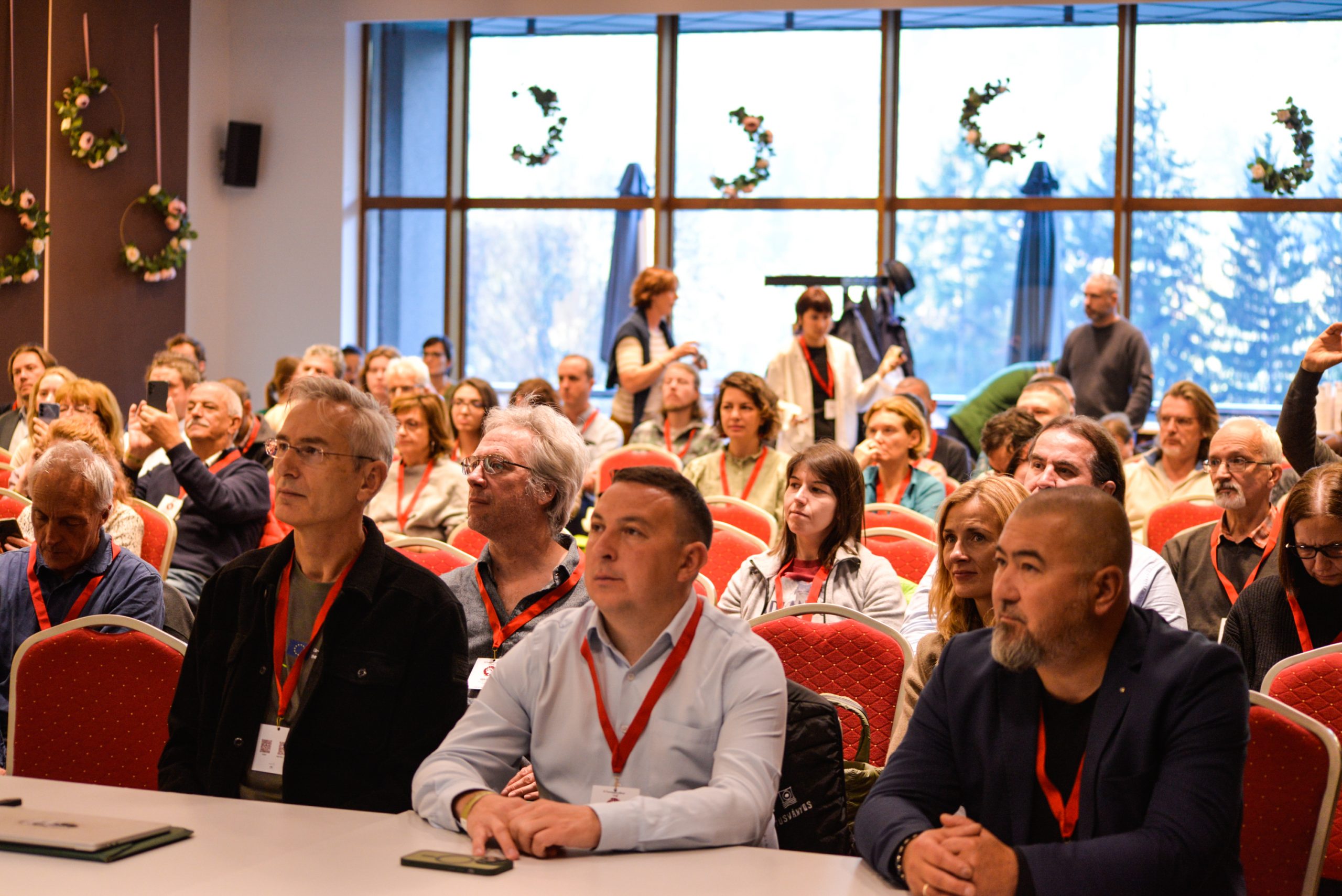
Perspectives and Approaches on Bear Management
The conference showcased a wide array of insights, ranging from scientific studies to field-based practicalities. Speakers explored the varied facets of human-bear conflict, with presentations illuminating diverse strategies for managing bear populations in ways that consider both conservation and community needs.
Cristian Remus Papp, serving as scientific lead, presented WWF Romania’s work on ecological connectivity and the importance of maintaining wildlife corridors. These efforts, he argued, help prevent bears from moving into human-dense areas by preserving essential migration pathways and habitats. Papp underscored that real progress on managing bear populations requires broad participation, from community initiatives in waste management to habitat restoration, all aimed at reducing potential conflict points.
Vukan Lavadinović brought insight from Serbia, where attitudes toward large carnivores are shaped by hunters’ cultural perceptions and experiences with different species. His findings reveal a generally positive view of wolves, an unprotected species in Serbia, but a more complex relationship with protected species like bears and lynxes. His presentation underscored that when hunters are engaged and informed, their support can become a powerful force in conservation.
Representing the CIC, Programme Officer Thomas Paulic presented a framework for sustainable hunting practices tailored to managing large carnivores in high-conflict areas. The framework introduced principles promoting selective harvesting, ethical standards, and community involvement as foundational elements of responsible hunting. Paulic highlighted the vital role hunters could play in adaptive management and data collection, citing the example of WeHunt’s success in Sweden, where hunters used the app to monitor and control African Swine Fever outbreaks. He stressed that as long as conflict incidences remain high, hunters would need to prioritise conflict-causing bears over trophy hunts for long-term success. Without improvement in conflict statistics, hunting may face restrictions—possibly with wider repercussions for carnivore policies across Europe. Sustainable practices, therefore, are ultimately in the best interest of hunters, communities, and the species themselves.
The CIC is collaborating with a network of experts to further refine these principles, with plans to publish a comprehensive guide aligning hunting with long-term conservation goals. This collective effort represents a forward-looking vision where hunters contribute as conservationists, working alongside other stakeholders.
Forging a Way Forward: Integrating Conservation, Community, and Data
As the conference concluded, one message stood out: Romania’s bear management challenges will require collaboration across all sectors. While hunting is a crucial tool, it must be paired with data-driven approaches and community engagement. The need for reliable bear population data, a clearer understanding of hunting’s impact on conflict, and the complex relationship between hunters and conservationists all point toward a solution that no single group can achieve alone.
Romania is on the cusp of rethinking large carnivore management, and as the conference showed, a multifaceted, adaptive approach is needed. Technology offers promising new ways to address human-wildlife conflicts, while community efforts lay the groundwork for sustainable solutions.
The CIC’s planned guide on large carnivore hunting will contribute to this effort, marking a step forward in aligning hunting practices with conservation goals. Through sustained collaboration, technology, and a shared commitment to adaptive management, Romania can move closer to lasting harmony in bear country.
For more information please contact Thomas Paulic, CIC Programme Officer at [email protected]

